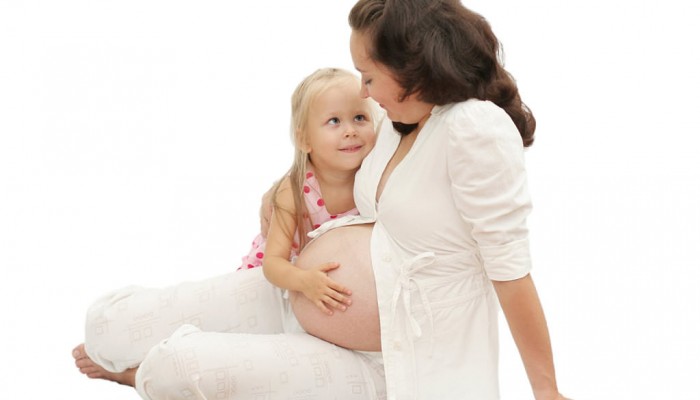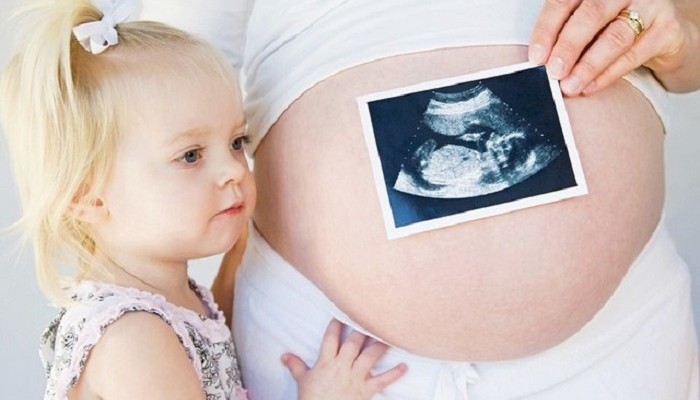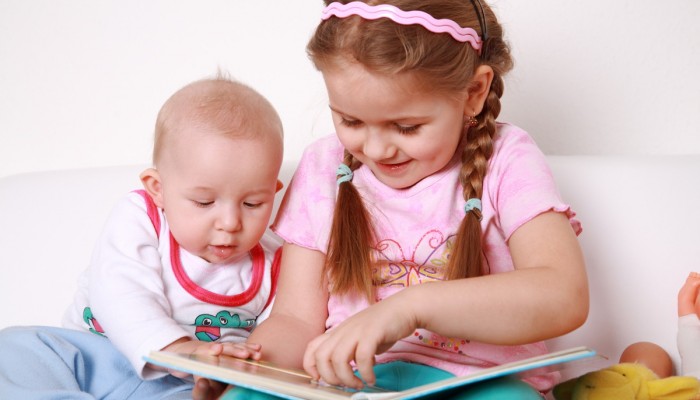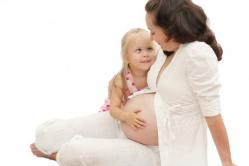Antipyretics for children are prescribed by a pediatrician. But there are emergency situations for fever in which the child needs to be given medicine immediately. Then the parents take responsibility and use antipyretic drugs. What is allowed to be given to infants? How can you bring down the temperature in older children? What are the safest medicines?
One child in a family is very convenient. You can pay a lot of attention to him, buy expensive things and a huge number of toys. In addition, over time, the baby grows up, learns to play himself and does not need parental care so much. Mom and Dad finally have time for themselves. And very often it is at this moment that they again think about the newborn, sleepless nights, pacifiers and diapers.
Second child
The second child means new chores and increased costs. After all, now you need to buy clothes and shoes for two, and you will also need much more toys. This is twice the parental attention and vigilance. This is different food - for a baby, an older child and mom and dad, endless cleaning and walks in any weather.
But if you look at it from the other side, then the second child is:
- A friend and a dear little man for an elder.
- In some way, a means of preventing selfishness in a brother or sister.
- Another support for parents in the future.
- An opportunity to experience the joy of motherhood and fatherhood for the second time.
- A way to improve your teaching skills and practice new skills.
- An incentive to improve material well-being.
- It's just an incomparable pleasure from the appearance of another little person in the family.
When is the best time to have a second child? How many months or years after the first birth should you think about a new pregnancy? What factors will be determining?
Determining factors
The age difference between children certainly affects their relationship and the life of the whole family as a whole.
Sometimes the second baby is born a year and a half after the first, and then the children are called the weather. And there is also the opposite situation, when the difference between brothers and sisters is 15–20 years, and in terms of age, the elder looks like the parent of the younger.
When is it better to give birth to a second child, so that it is not too burdensome for the parents, and the children are friends with each other? To solve this issue for yourself, you must first take into account the following factors:
- The age of the parents.
- Health status.
- Physical and psychological capabilities.
- The relationship of children in the future.
Parents age

It's no secret that a woman's age plays an important role in pregnancy planning. And although today many give birth to children at forty years of age and later, the period from 25 to 35 years is still considered optimal for bearing a child. Why?
At this age, the expectant mother is full of strength, energy and health. Chronic diseases usually do not yet exist, and if there are, they have little effect on her well-being. It is easy for a woman to endure pregnancy and at the same time take care of her first child. In addition, the body of the expectant mother has one more feature that must always be remembered.
Female eggs are not able to renew themselves. They are present in the ovaries from birth, and their number does not change throughout life. The impact of unfavorable external factors inevitably leads to the emergence of mutations in them. With age, these changes accumulate, and the likelihood of the participation of such an egg in conception increases.
That is why doctors have long noticed that middle-aged mothers are much more likely to have children with chromosomal abnormalities. This is especially true for Down syndrome.
Chromosomal abnormalities
Down syndrome, Edwards, Patau - all this is the result of a chromosomal breakdown. It is impossible to predict and prevent such a situation. Already at the moment when the egg combines with the sperm and begins to divide, the chromosome divergence is disrupted. And this means that the future baby in the chromosome set will have less or more of them than necessary. Such a breakdown leads to serious developmental disorders, both physical and mental. Sometimes chromosomal abnormalities are incompatible with life.
At a young age, the risk of having a baby with Down syndrome is one in seven hundred newborns. But if the expectant mother is over 35 years old, it increases significantly. And after 45 years, the probability of having such a child is 19-20%.
This does not mean that you can only think about a second baby up to thirty years old. But you shouldn't forget about this important factor either.
Sometimes it is he who turns out to be decisive. Is it possible to somehow influence this situation?
Screening

Modern medicine offers screening for chromosomal abnormalities to all pregnant women. At a certain time, the expectant mother takes a special blood test and undergoes an ultrasound scan to assess the risk of this pathology. But, unfortunately, these data allow us to get only the probability of the birth of a special baby.
In some countries, pregnant women over 35 are immediately offered to undergo an invasive examination - to determine the chromosomal set of embryonic cells. This analysis is almost 100% reliable. But he only informs future parents about the pathology. Modern medicine is not able to change the already existing situation with chromosomal breakage.
If the age of the expectant mother is approaching the borderline, it is better not to postpone the birth of a second baby, even if it happens a year or two after the first birth.
Unlike female age, male age is not that important in planning a pregnancy. Spermatozoa are formed continuously throughout life and the likelihood of mutation in them is minimal.
Health status
Health status also affects the age difference between children. For the future father, this dependence is direct - the younger he is at the time of the birth of both babies, the more strength and opportunities he has for their maintenance, upbringing and development. Therefore, a small difference between the heirs is best suited for the father of the family.
With a woman, everything is more complicated. On the one hand, children of the same age are a great burden on the fragile mother's body. But on the other hand, too long waiting for the second baby is the risk of new diseases, which increases with age.
After how many years is it better to give birth to a child from a medical point of view? To answer this question, you need to consider how the previous pregnancy ended:
- Natural childbirth.
- Caesarean section.
Natural childbirth
The period of pregnancy implies a significant load on the woman's body, her muscles and joints, and the spine. In addition, this is an increased consumption of trace elements, especially iron and calcium. During the carrying of a baby, the expectant mother often develops iron deficiency anemia, and hemoglobin decreases. Brittle nails, fragility of teeth, deterioration of hair condition are also noted.
If the second pregnancy immediately follows the first pregnancy, the lack of vitamins and minerals increases. This entails a threat to the health of the second baby, because being in the womb, he will receive less of the substances he needs.
After the first birth, a woman should be examined, undergo the necessary rehabilitation treatment, and allow the body to grow stronger. It should be borne in mind that it is not easy to care for a baby, especially when carrying a second child. These recommendations are valid for natural childbirth. But what if the first baby was born by cesarean section?
Cesarean section
If the first birth ended with a caesarean section, the attitude of doctors towards repeated pregnancy is more wary. Typically, the second child is also born with an operation. And although the main medical recommendations will be, as in natural childbirth, the condition of the scar on the uterus is still the decisive factor.
What is the threat to a woman of a second pregnancy after a cesarean section? The most dangerous thing that can happen is the rupture of the uterus along the scar. To prevent this from happening, the scar must be wealthy, and, therefore, a woman needs a certain time to restore the normal structure of the uterine wall.
Doctors consider the minimum difference between two pregnancies after surgical delivery to be a period of two to three years. In practice, many women give birth earlier - after one and a half to two years. It is only safe if the scar is confirmed by ultrasound.
Repeated childbirth after a cesarean section is always a certain risk of complications, therefore, you need to plan a pregnancy after consulting a gynecologist.
Physical and psychological capabilities

Often, the decision to have a second child is made under the influence of relatives, friends and public opinion. Especially if everyone already has two or three children around with a slight age difference. But this is fundamentally wrong.
Each family should make a decision about a second baby, guided only by their own capabilities. This is especially important for a woman.
Too often sleepless nights, colic, teething tire the mother so much that she only dreams of rest, and not of the repeated happiness of motherhood. It is doubly difficult to cope with a child if he has health problems, increased excitability, and the husband is constantly at work and there is no one to expect help from.
In this situation, a woman is in a state of constant stress and, having given birth to a second child under the influence of some factors, she can easily fall into depression with unpleasant consequences.
Before getting pregnant again, you must definitely think about whether the parents are capable of such a responsibility? Often it will be more reasonable to wait a few years until the child grows up, and mom and dad get at least a little rest.
The relationship of children

And what about the relationship of children in the family? This factor is also very important. After all, all parents want their brothers and sisters to be friends with each other - in childhood and in adulthood. In addition, joint children's games greatly facilitate the life of parents.
Certain features can be distinguished if the age difference in children is:
- 1-2 years;
- 3-4 years;
- 5-7 years old;
- 8 or more.
1-2 years
Kids with such a small difference are usually very friendly with each other. Weather children in this respect are very similar to twins. They are unlikely to suffer from boredom and loneliness, because there is always a playmate nearby. It is easier for weather to adapt in kindergarten and school, usually they go to the same group, and then to the same class.
For a woman, a certain advantage is the ability to fulfill her maternal duty, and then build a career, without interruption anymore during pregnancy and childbirth.
However, such a lengthy decree has a negative impact on professional knowledge. And physically raising the weather is pretty hard.
3-4 years

This difference is considered optimal from a medical point of view, because there is plenty of time for parents to recuperate. However, the interests of children are already significantly different. They have different modes, food, and games. Often there is serious competition between brothers and sisters with such a difference, because the elder is already used to enjoying the attention of his parents alone.
For the mother, such a difference in age makes life easier, since the first child already obeys and even helps, and the second tries to copy him in everything.
5-7 years
The difference of 5-7 years is too big for joint interests. But this also has its advantages. The first children really feel like they are older. They can make life much easier for mom, entertaining the baby and helping her around the house. The main thing is not to get carried away and not shift parental responsibilities onto them. Younger children usually love their elders very much, copy them and imitate them in everything.
A significant disadvantage is the interruption of professional activities for the mother. However, this is a great opportunity to help a senior with elementary school while on maternity leave.
8 years and more
When the difference is too great, older children begin to resemble their second parents. Here, a patronizing attitude towards a brother or sister is possible, or, conversely, ignoring him. Sometimes the elder shows concern and takes care of the younger in every possible way.
There will be no common interests, of course, with such a difference, but the second children can always turn to the first for help or advice. For parents, it is much easier to arrange life with such a difference, since older children are usually already quite independent.
How long to give birth to a second baby is an important question for every family. And you need to solve it, proceeding only from your capabilities, without listening to outside advice and recommendations.



